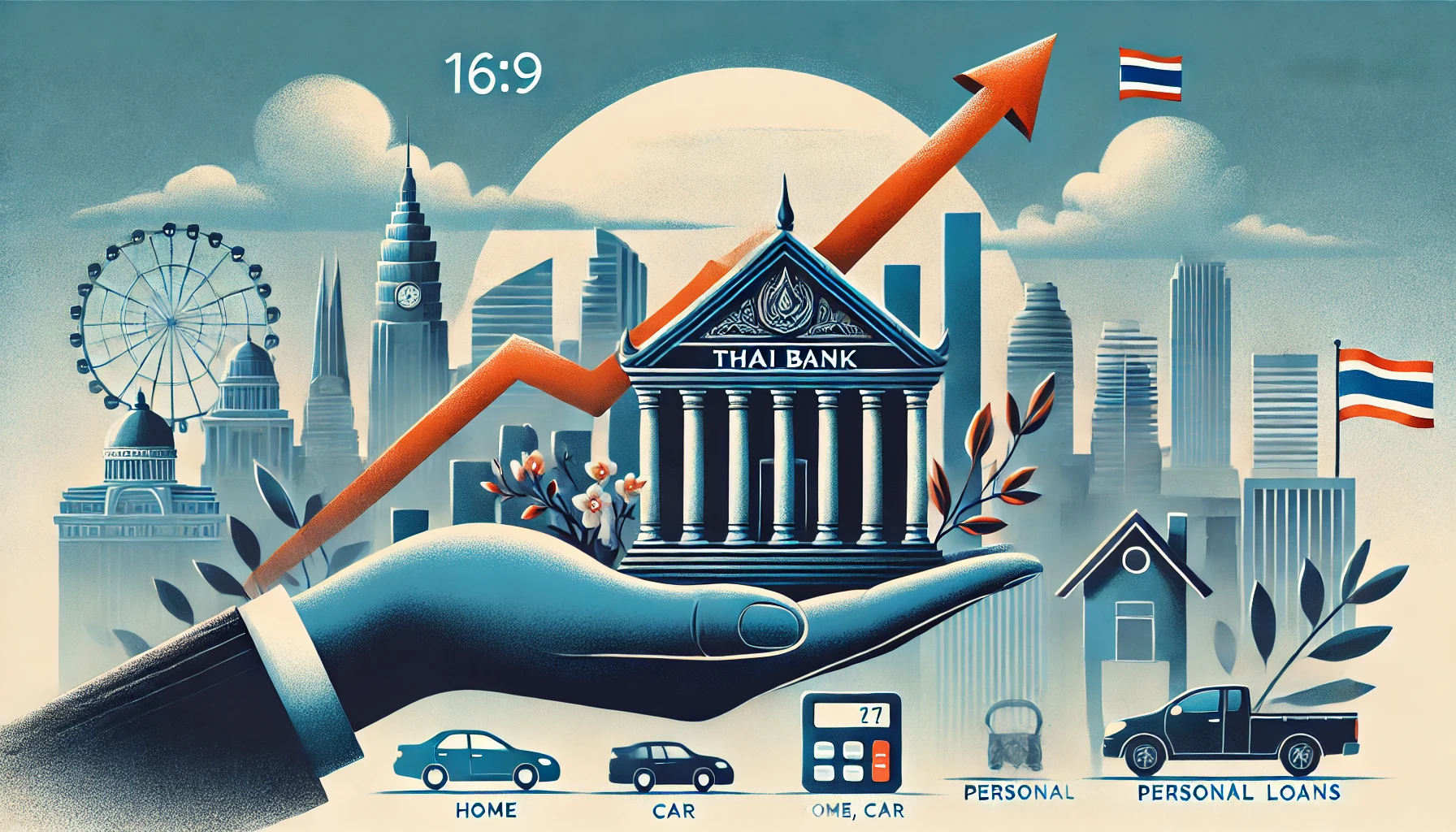Thailand’s Economic Challenges: Rising Bad Loans and Debt Relief Plans
Thailand’s economy has faced significant challenges in recent years, particularly in the banking sector, where the ratio of non-performing loans (NPL) has risen. In September 2024, the NPL ratio reached 2.97%, the highest level in three years, reflecting difficulties for both businesses and individuals in repaying their debts.
Background
During the pandemic, Thailand’s economy was severely impacted, leading to reduced income and increased debt for many households. According to the Bank of Thailand, household debt stood at 16.3 trillion baht in June 2024, equivalent to 89.6% of GDP—one of the highest levels in Asia. This high debt burden has suppressed consumption and hindered economic growth. (Source)
Current Challenges
The increasing NPL ratio highlights ongoing economic difficulties. The Bank of Thailand has expressed concern over small and medium-sized enterprises’ ability to meet their debt obligations, particularly those affected by structural issues and reduced competitiveness. Furthermore, households experiencing slow income recovery and high debt levels have been identified as vulnerable groups.
Planned Measures
To address these challenges, Prime Minister Paetongtarn Shinawatra has announced plans to restructure up to 1.3 trillion baht in mortgage, auto, and personal loans. Proposed measures include extended repayment periods and temporary interest waivers. Finance Minister Pichai Chunhavajira has also suggested a three-year interest pause and a 50% reduction in principal payments for debts overdue between one and twelve months. These proposals are being discussed with the Bankers’ Association and aim to help borrowers restructure their debts and improve access to credit.
Future Outlook
The implementation of these debt relief measures is expected to ease the immediate burden on many borrowers and potentially stimulate consumption. However, challenges remain, such as addressing structural issues in certain sectors and ensuring that the relief programs do not lead to moral hazard or further financial instability. Authorities must closely monitor the impact of these measures and adjust policies as needed to ensure sustainable economic recovery.
Conclusion
In summary, Thailand faces significant economic challenges with rising NPL ratios and high household debt levels. The government’s proactive measures to restructure debt and support borrowers are promising steps toward economic stability. However, success depends on effective implementation and continuous monitoring of economic conditions.





